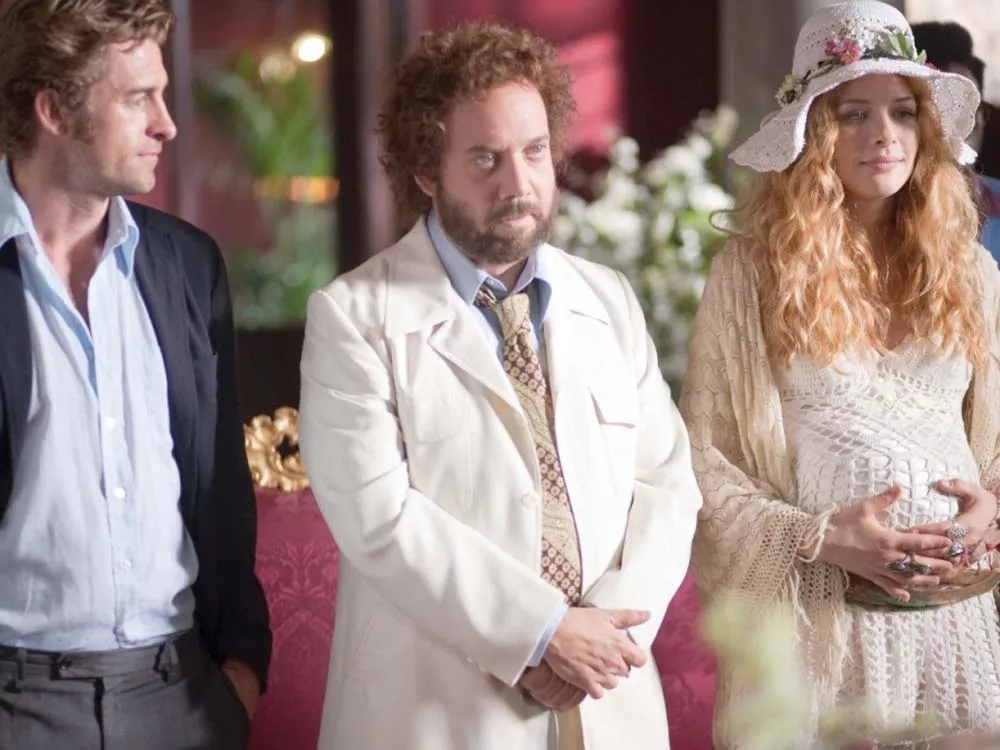The emotional life of Barney Panofsky (played with perfect pitch by Paul Giamatti, who received a Golden Globe for his effort) is as messy as Barney’s rumpled appearance. The film, which is based on a 1997 novel by Mordecai Richler (The Apprenticeship of Duddy Kravitz), offers a selective review of several decades of Barney’s life and three marriages. Like its hero, it’s not always pretty to look at but it’s always seductively engaging.
Despite his crude manners, disheveled appearance, paunchy gut, and near-constant cigar-chomping, Barney’s zest for life attracts friends and wives. Although he’s a big-time producer of a Montreal soap opera, Barney is by no means rolling in Canadian dollars, so his wealth does not explain these attractions.
In fact, Barney is a broke bohemian in Rome when he marries his beautiful first wife (Rachelle Lefevre) in 1974. His second wife (Minnie Driver, in a performance that’s sometimes funny but often too shrilly stereotypical) is a Jewish princess who was born into money. Barney discovers his third wife (Rosamund Pike) at the wedding reception for his second marriage, from which he tackily dashes out in a grand romantic gesture to declare his undying love for this new woman in his life. With a verve that rivals Giamatti’s, Dustin Hoffman plays Barney’s father, Izzy Panofsky, a retired Montreal cop who still has an eye for the ladies.
Barney’s Version is loosely structured as a reflection that’s meant to resolve a question regarding the mysterious disappearance of Barney’s best friend, Boogie (Scott Speedman), which is raised in a book written by another, different Montreal cop. Barney might be spooked by the sleuthing, but by the point the insinuating book is released, he’s aging and his memory is starting to fade.
All this is a lot for one movie, and that’s precisely what bedevils the project. Barney’s Version is
a little too long and windy, and Lewis’ direction and the screenplay by
Michael Konyves do little to winnow the salient points and shape the
narrative arc. Nevertheless, the performances are superlative, as is
much of the film’s Jewish flavor. The ham is barely noticeable.















